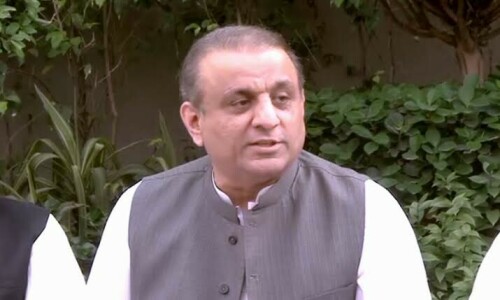THE decision last week by Chief Justice Mansoor Ali Shah of the Lahore High Court to publicly disclose the salary and perks he receives, and to appoint a public information officer for the court under the Punjab Transparency and Right to Information Act, 2013, is laudable. And it ought to be emulated by other institutions across the political, bureaucratic and institutional spectrum. The principle at stake is straightforward: income and perks provided by the state are the people’s money and ought to be publicly disclosed. Unhappily, that principle has been undermined by all institutions over the decades and a debate on rationalising salaries and perks has been avoided. True, the reality of the marketplace and populist sentiment can sometimes collide. Chief Justice Shah’s remuneration may be regarded as high by some sections in a country where poverty is still endemic and the minimum wage relatively low. Yet, the need to attract competent, professional and scrupulous judges is also apparent as is the competition that the public sector faces from the private sector for recruitment. As with institutions and the public sector across the world, there is a balance that must be struck. Openness and transparency can help get the balance right.
Perhaps the greatest difficulty is in the matter of land. The state providing land at subsidised rates to individuals in public service is a controversial practice that needs to be urgently reassessed. In this regard, the focus can sometimes be on the military, but the practice extends to other institutions too, especially the bureaucracy. Indeed, there exists no comprehensive list of who in public service is entitled to subsidised or free land. On occasion, there are short-lived controversies of residential land allotments to retired bureaucrats, judges or military officers, but never an across-the-board policy reassessment. The reasons for that are mundane but pernicious. A political class steeped in patronage does not view land distribution as a problem and may even consider it advantageous. Beneficiaries in the bureaucracy and judiciary have an incentive to continue the system. And, of course, a military rooted in colonial-era practices and attitudes towards land sees allotments as both necessary and highly prized. Change will be slow in coming, but it is inevitable. The ongoing census may reveal a dramatic growth in the country’s population and even conservative estimates suggest the pressures on land are already intense. Adequate compensation for public officials is necessary; excessive compensation wrong.
Published in Dawn, March 29th, 2017










































